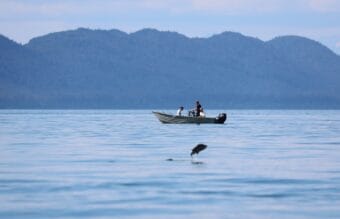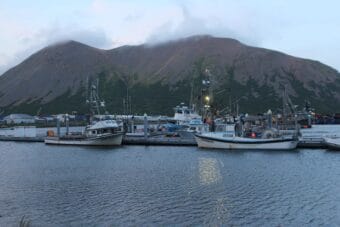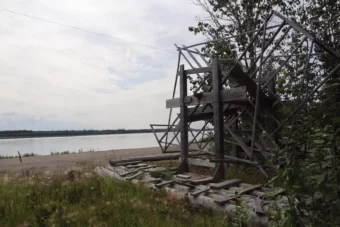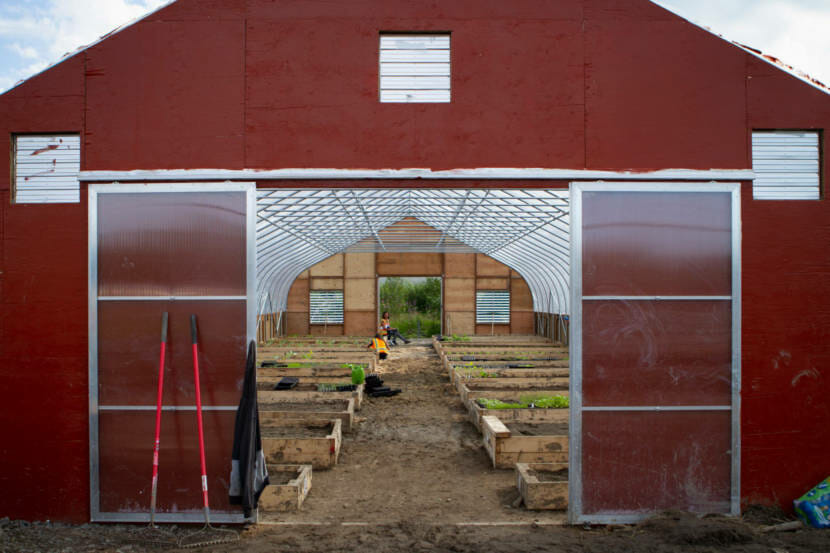
Usually Kwik’pak Fisheries, the only commercial fish processor on the Yukon River, sells salmon around the world. After the Yukon’s main salmon species started dwindling to record lows last year, Kwik’pak had to pivot to stay afloat.
Kilee Fratis and Josine Wasky are standing with a group of teenagers in one of the only greenhouses along the lower Yukon River. It’s a rare sunny day for this summer, and the two girls are feeling it.
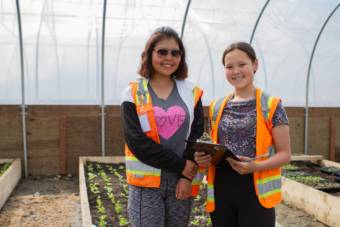
“It’s really hot,” said Fratis.
They’re sticking thermometers in the soil and making notes.
“We’re watering the plants and taking the temperature,” Wasky said.
“And checking the moisture on the soil,” Fratis added.
The greenhouses are filled up with peppers, peas, chard and turnips. Right now they’re watering the tomatoes. They just got to taste one.
“It was really sweet, and so it was good,” Fratis said.
It’s their third summer working at Kwik’pak Fisheries in Emmonak, but this work looks very different from past years.
Fratis and Wasky say that normally they would be deboning fish and boxing them up. But with fish returning in record low records, fish plant employees are planting tomatoes instead.
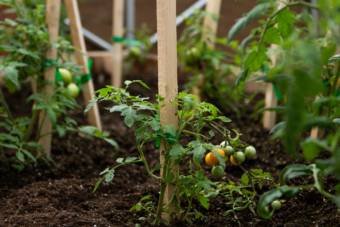
“This is the worst I’ve ever seen ever to where somebody who lives here can’t go out and catch a fish to eat,” said Kwik’pak general manager Jack Schultheis.
He said these are the worst chum salmon runs he’s ever seen in the nearly 50 years he’s been in Emmonak.
When chinook runs began declining decades ago, Kwik’pak opened to keep employment and profits up in the region. It focused on chum salmon, and for 20 years it profited off the abundant chum by canning it, packing it and selling it around the world. Kwik’pak grew to one of the largest employers in one of the country’s poorest regions.
Last year, the summer chum run fell to below half its usual size: from 1.7 million fish to 700,000. This year it dropped even more: to 153,497 salmon, less than a tenth of its usual size.
“You know, do I wonder if this is going bad? You know, as much as I hate to admit it, this is going really bad,” Schultheis said.
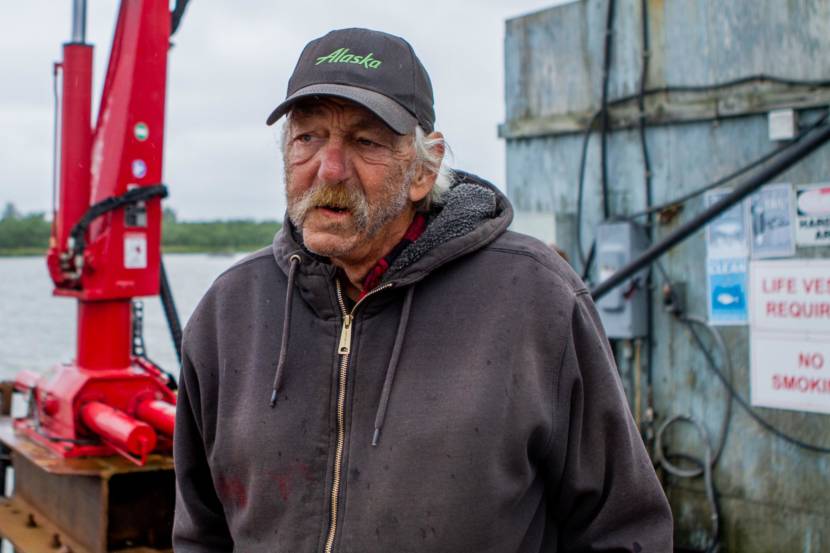
Fall chum are still running, but the numbers have also dropped dramatically. Commercial and subsistence fishing is closed on the river, and Kwik’Pak Fisheries can’t process the fish it was created for or fulfill its main purpose of infusing cash into the local economy. It usually pays out $7 million to $10 million to local workers, but this year it’ll be much lower.
“I’m guessing less than a million. Seven-hundred thousand to 800,000 [dollars],” Schultheis said.
So to keep up local employment, Schultheis quickly pivoted last summer when the chum runs started dropping. If workers couldn’t catch food, they could grow it. He applied for a grant to build greenhouses. That allowed Kwik’pak to hire back loyal employees and retain its summer teen workers, who we heard from earlier.
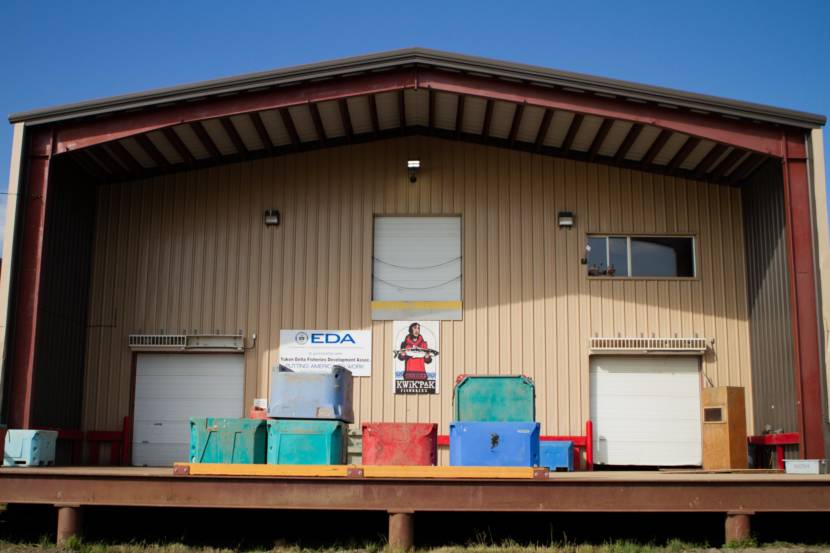
Schultheis hopes the greenhouses will eventually contribute to local food security. And to diversify even more, Kwik’Pak is also experimenting with buying an entirely new species of fish: cod. There are a handful of commercially licensed cod fishermen in Emmonak, and they’ve been taking their river-going skiffs onto the Bering Sea to try their luck.
After 20 years of relying on chum, the company could change its logo from a man in a qaspeq holding a salmon to holding a cod instead.

